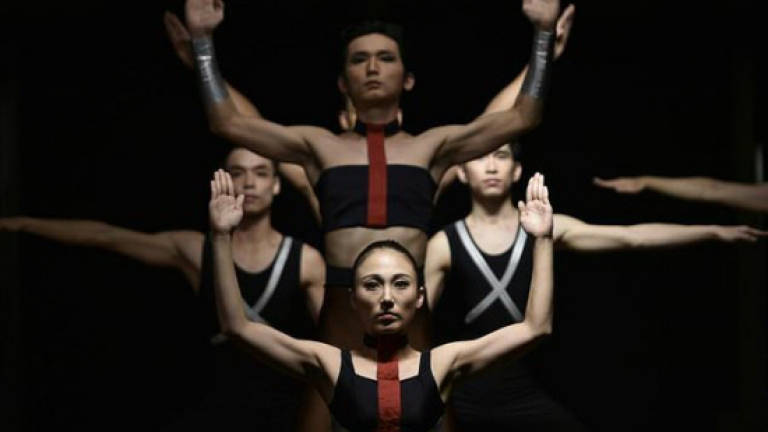Dance festival in Taiwan pays tribute to political victims

IN a historic wooden house opening on to a serene courtyard in downtown Taipei, a dancer strips naked and re-enacts the self-immolation of an activist 28 years ago.
The performance is inspired by Cheng Nan-jung, often referred to as Taiwan's "father of free speech".
Cheng, the editor of a political magazine, burned himself to death in 1989 when police tried to arrest him on charges of sedition, before the island transitioned to democracy.
The piece is the highlight this year of an annual festival organised by a company founded by the late Tsai Jui-yueh, regarded as the pioneer of modern dance on the island.
Shows by the group often touch on political themes, from human rights to land issues.
This year's four-day festival which starts Thursday ties in with the 70th anniversary of a massacre by nationalist Chinese troops known as the 228 Incident.
The tragedy marked the start of decades of bloody political purges in Taiwan, under which Tsai and her husband both suffered.
The show comes as Taiwan reckons with its dark past. The current government has vowed to investigate the purges.
Against ominous background music, three male performers leap and skid across the stage, wearing khaki caps similar to those worn by Taiwanese police officers in the past.
In another scene, female dancers in peasant costumes gesture violently and cover their mouths, punctuating their movement with cries.
Tsai died in 2005, and the company is now run by two of her former students, sisters Grace and Ondine Shiau.
"Although there are scars, it is our history and everyone should be aware of what really happened," Ondine, who is also Tsai's daughter-in-law, told AFP.
"Tableaux", the piece dedicated to Cheng, is being performed in Taiwan for the first time since 2004, when it was created by renowned Colombian-American choreographer Eleo Pomare at Ondine's request.
Cheng was a fierce advocate of free speech and defied the Kuomintang government's censorship laws by drafting a constitution for a democratic Taiwan.
Ondine says Taiwanese dancers were hesitant to perform "Tableaux" in 2004 as it was still taboo then to openly discuss the island's past.
But she believes Taiwan's residents are more politically aware now, especially after mass student-led protests against trade deals with mainland China in 2014, known as the Sunflower Movement.
"The skies opened up for a lot of young people then. Dancers today won't be scared like before," she said.
Another performance in this year's festival pays tribute to Taiwanese democracy activist Lee Ming-cheh, detained by Chinese police earlier this year and charged with "subverting state power".
Lee pleaded guilty in a Sept court appearance and is awaiting sentencing.
Tsai opened her dance school in 1946. She was sent to a concentration camp in 1949 for three years, and her husband expelled to China. She later emigrated to Australia where she lived until her death. — AFP